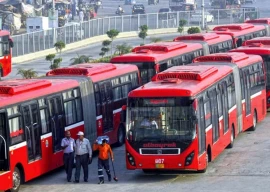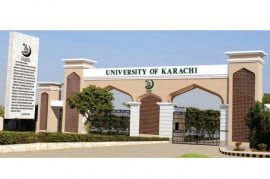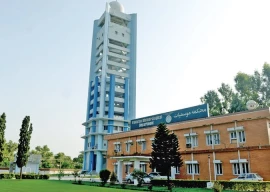
Let us look at our neglect in just one area where the state has repeatedly ignored violation of laws; i.e., vehicles and their number plates. It is a fact that most criminals rely on stolen or fake number plated vehicles to commit crimes. The 2.3 million smuggled and non-duty paid vehicles in Pakistan offer a world of incentives and opportunities to criminals of all shades. Government officials admit that 450,000 luxury vehicles have been registered on fake documents. There could not have been a better example of public-private partnership for the promotion of crime. It has not yet dawned upon the police that the battle for combating terrorism, killings, burglaries, violence, smuggling and kidnappings begins by controlling vehicles and their number plates.
A recent survey conducted on government-owned green number plate cars revealed that 35 per cent of cars were either carrying fake government number plates or were simply posing as government vehicles by illegally displaying their private registration numbers on green background plates. Vehicles of this category are the ones that are most often employed in terrorism, violence and kidnappings, for they leave behind no clues of their origin or ownership. The intimidating official appearance of green plated vehicles also becomes a licence to gain access to places like airports, government offices and other controlled locations where a regular vehicle would not be permitted.
An automatic number plate recognition (ANPR) system has been effectively used by many countries to manage number plates. The system involves a network of CCTV cameras that can read and communicate the number plate, time and location to a central database. This information helps in identifying and tracking suspicious vehicles, nabbing criminals, gathering intelligence, investigating crime and automatically generating tickets for traffic violations or non-payment of motor vehicle taxes. With ANPR cameras fitted on roads, highways, intersections and police cars, a typical national ANPR data centre could receive up to 50 million number plate “reads” per day. There is an urgent need to establish a modern ANPR and a national vehicle database in Pakistan.
In Sindh alone, there are over 20 different types of number plates in use. Some organisations do not even register their vehicles with the excise and taxation department and operate with their own generated number plate system. One simple solution will be to standardise all number plates for all vehicles — identical size, identical material, identical font, identical colour, identical pattern of installation. This will not only enable the police and the ANPR system to easily detect an unlawful vehicle but also make it easier for the police to stop and check any vehicle.
Changes in attitudes and systems can be accelerated when the leaders begin to do what they preach. Can those in authority be the first ones to give up their privileged but crime-prone green number plates in favour of the standard number plates issued to all common citizens? Vehicles using plaques and signs that suggest status and power such as MNA, MPA, speaker or judge violate the concept of “equal citizens” and must be declared unlawful. Even after adopting a modern ANPR system and standardising all number plates, we would still be at the mercy of a police force that does not have the competence, courage and the equipment to enforce the law. It may be best to start training them to read basic alphabets like AFR, distinguish between numbers and private names, or at least, recognise vehicles that carry no number plates at all.
Published in The Express Tribune, June 13th, 2013.
Like Opinion & Editorial on Facebook, follow @ETOpEd on Twitter to receive all updates on all our daily pieces.




1723621875-0/kylie-(1)1723621875-0-165x106.webp)










1725096749-0/Untitled-design-(1)1725096749-0-270x192.webp)



COMMENTS
Comments are moderated and generally will be posted if they are on-topic and not abusive.
For more information, please see our Comments FAQ